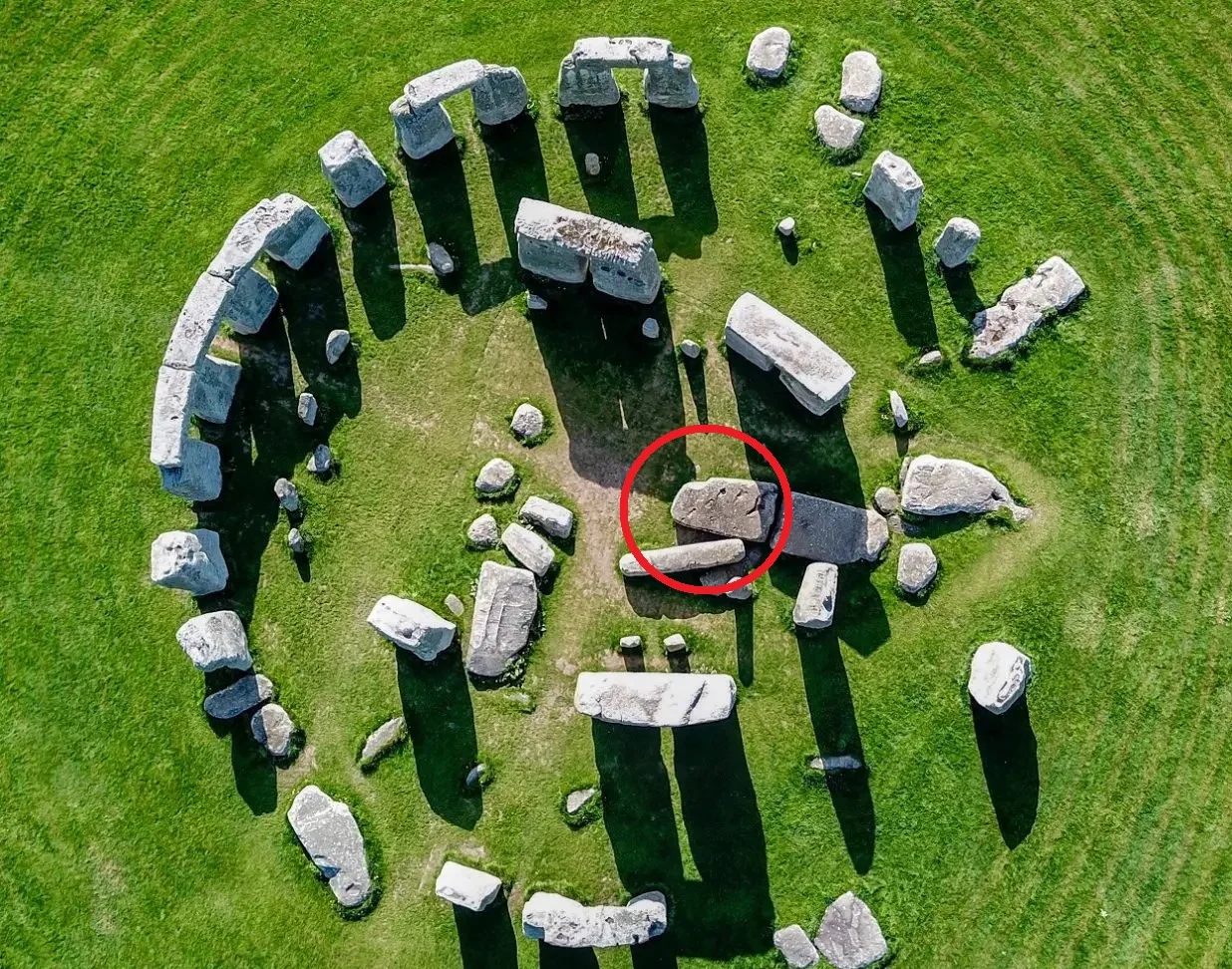According to a new study published in the journal Nature, the Altar Stone at Stonehenge (thought to be Welsh in origin) actually hails from Scotland.
The Altar Stone, otherwise known as Stone 80, is a six-tonne recumbent megalith made from a micaceous sandstone.
Previous studies have attributed the Altar Stone to the Senni Beds formation of the Old Red Sandstone in Wales (ORS), however, a geochemical analysis of two 30-µm samples now suggests that the stone was transported from Scotland some 4,500-years-ago.
The research was led by a Welsh PhD student, Anthony Clarke, now working at Curtin University in Western Australia.
The study authors analysed the chemistry of detrital zircon, apatite and rutile grains from within fragments from the stone, revealing Mesoproterozoic and Archaean sources in the Zircon, and a mid-Ordovician source in the rutile and apatite.
According to the study authors: “Detrital age comparisons to sedimentary packages throughout Britain and Ireland reveal a remarkable similarity to the Old Red Sandstone of the Orcadian Basin in northeast Scotland. Such a provenance implies that the Altar Stone, a 6 tonne shaped block, was sourced at least 750 km from its current location.”
How the stone was transported such a massive distance is speculated, but this latest revelation demonstrates a high level of societal organisation with intra-Britain transport from prehistoric times.
Study co-author, Professor Chris Kirkland, said: “Our discovery of the Altar Stone’s origins highlights a significant level of societal coordination during the Neolithic period and helps paint a fascinating picture of prehistoric Britain”.
“Transporting such massive cargo overland from Scotland to southern England would have been extremely challenging, indicating a likely marine shipping route along the coast of Britain,” added Professor Kirkland.
Header Image Credit : Shutterstock
Sources : Clarke, A.J.I., Kirkland, C.L., Bevins, R.E. et al. A Scottish provenance for the Altar Stone of Stonehenge. Nature 632, 570–575 (2024). https://doi.org/10.1038/s41586-024-07652-1





